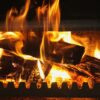A Comprehensive Guide to Banishing Fireplace Odors in Fairfax County, VA
There’s nothing quite like the cozy warmth and mesmerizing flicker of a roaring fireplace on a cold winter’s night. However, the lingering smell of soot and smoke can quickly turn this idyllic scene into a nuisance. If you’re a resident of Fairfax County, Virginia, and are dealing with this issue, we’ve got you covered. Here’s your comprehensive guide to banishing fireplace odors.
When it comes to dealing with fireplace odors, the first step is understanding the root cause. Fireplace odors can be attributed to various factors including excess creosote, dampness, and poor airflow.
Creosote, a byproduct of burning wood, builds up on the walls of your chimney over time. It not only emits unpleasant odors but is also a fire hazard. Dampness within the chimney encourages the growth of mold and mildew, which also contribute to the foul smell. Lack of proper ventilation or airflow can cause the smoke and its accompanying smell to linger in your home, instead of being properly vented outside.
Now that you know the cause, let’s move on to the solution. Here are some practical ways to banish those unpleasant fireplace odors:
1. Regular Chimney Cleaning and Inspection: The most effective way to prevent and combat fireplace odors is to have your chimney cleaned and inspected regularly. The Chimney Safety Institute of America recommends annual inspections. A&T Chimney Sweeps fireplace, furnace, dryer vent, gutter cleaning, and repair services in Fairfax County VA, can help you maintain a clean, safe, and odor-free chimney. They are professional, certified chimney sweeps who know how to deal with creosote buildup, dampness, and other issues that may cause your fireplace to stink.
2. Use Seasoned Firewood: The type of wood you burn can greatly affect the smell of your fireplace. Green or unseasoned wood contains high moisture content which results in more smoke and creosote. On the other hand, seasoned or dried wood burns cleaner and produces less smoke and creosote, reducing the chance of foul odors.
3. Install a Chimney Cap: A chimney cap prevents rainwater from entering your chimney, which can cause dampness and lead to unpleasant smells. It also keeps out animals, birds, and debris, which can also contribute to bad odors and other potential issues.
4. Improve Ventilation: Proper ventilation ensures that the smoke from the fire is drawn up and out of your chimney, rather than back into your home. Make sure your damper is fully open when using your fireplace and consider adding more air vents if necessary.
5. Use Odor-Absorbing Products: Certain products, such as activated charcoal or baking soda, can absorb and neutralize bad odors. Place a small amount in a bowl near the fireplace when it’s not in use.
It’s important to remember that while these tips can help reduce fireplace odors, they won’t completely eliminate them if there’s an underlying issue like a creosote buildup or a damp chimney. In such cases, it’s best to hire a professional chimney sweep.
FAQs
Q: How often should I have my chimney cleaned?
A: The Chimney Safety Institute of America recommends having your chimney cleaned and inspected at least once a year. However, if you use your fireplace frequently, you may need to have it cleaned more often.
Q: Can I clean my chimney myself?
A: While it’s possible to clean your chimney yourself, it’s not recommended unless you have the necessary skills and equipment. It can be a dangerous task if not done correctly. Hiring a professional chimney sweep ensures a thorough and safe cleaning.
Q: Why does my fireplace smell even when it’s not in use?
A: The smell is likely due to creosote buildup, dampness, or poor ventilation. Even when your fireplace isn’t in use, these factors can still cause unpleasant odors.
Q: Can burning certain types of wood make my fireplace smell worse?
A: Yes, burning green or unseasoned wood can produce more smoke and creosote, leading to stronger odors. For a cleaner burn, use seasoned or dried wood.
In conclusion, keeping your fireplace and chimney clean and well-maintained is the key to preventing unpleasant odors. When in doubt, don’t hesitate to call in the professionals at A&T Chimney Sweeps. They have the experience and knowledge to keep your fireplace smelling fresh and working efficiently.








